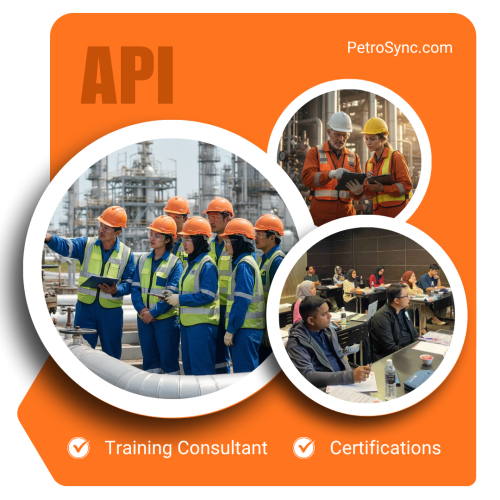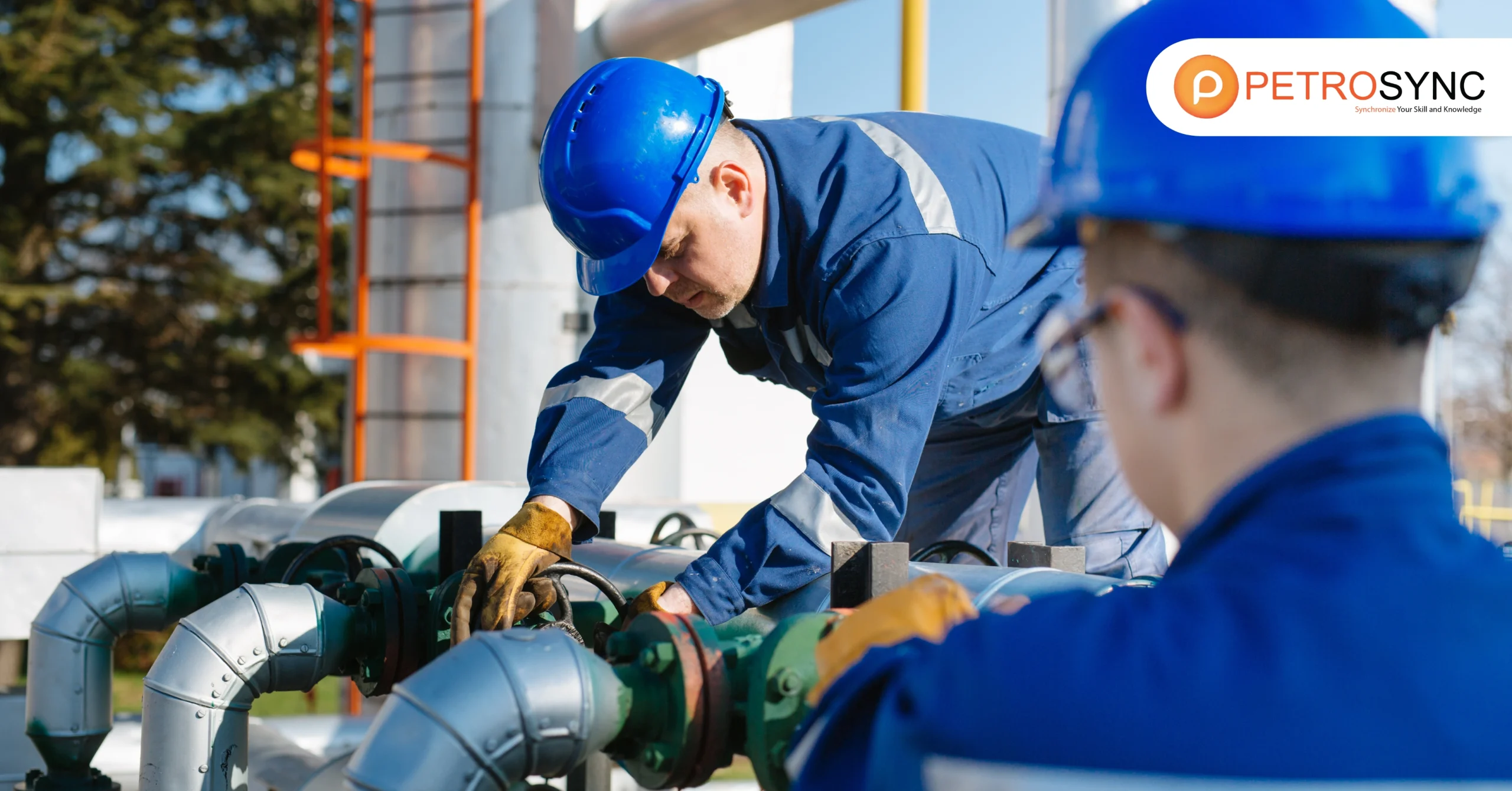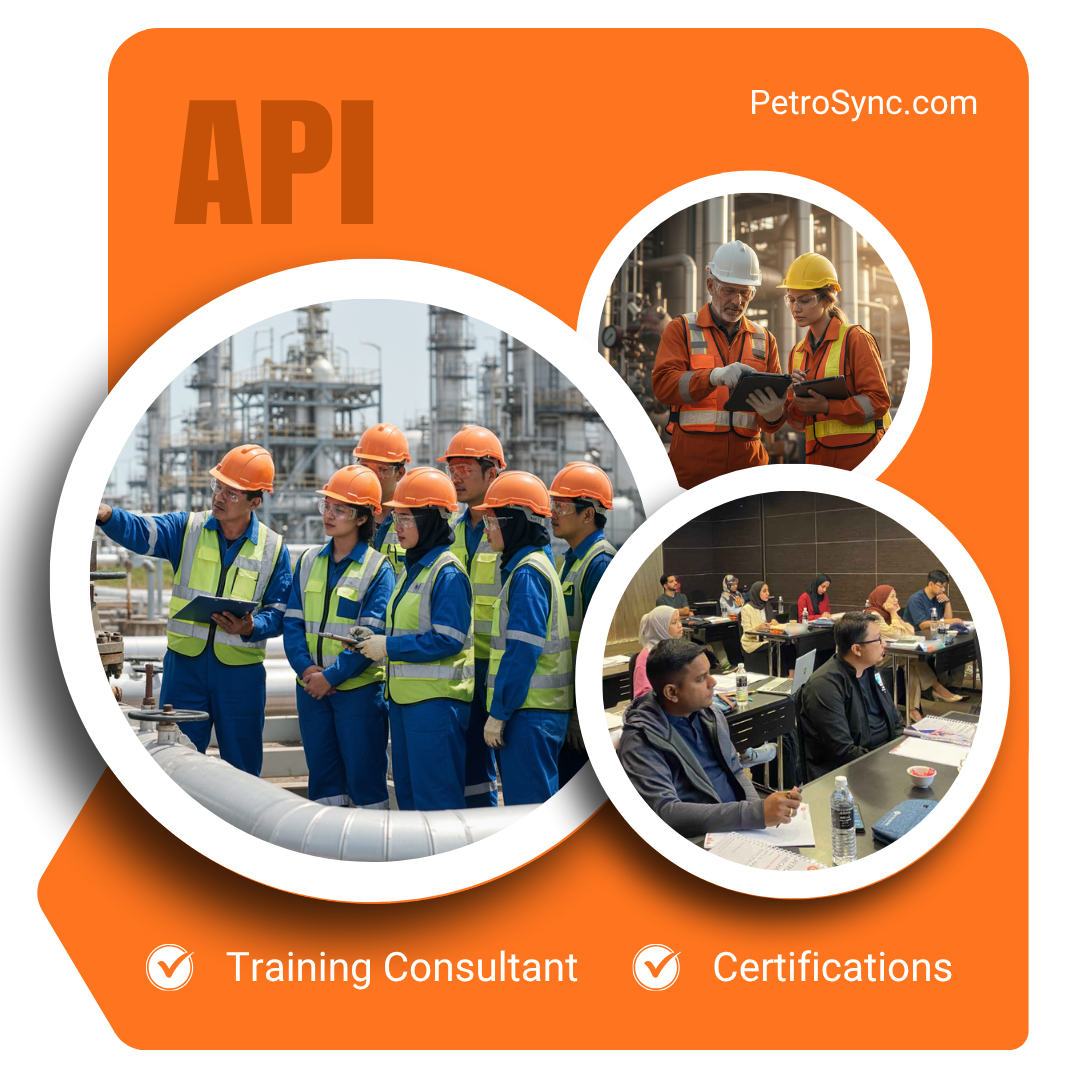Pipeline system safety and dependability are critical components of industrial operations, particularly in the oil and gas, petrochemical, and energy sectors. Professionals seeking to expand their expertise in this industry place a high value on the API 570 Piping Inspector certification. In this article, we will look at the most important components of the API 570 course, as well as what it takes to get certified.
Table of Contents
ToggleWhat Is API 570 Abbreviation?

API or the American Petroleum Institute, develops global standards for the oil, gas, and energy industries. API 570 certification, which focuses on the “Piping Inspection Code,” establishes criteria for inspecting, repairing, altering, and rerating in-service piping systems.
This certification assures that specialists can identify possible dangers, perform safe repairs, and maintain the operational integrity of essential piping systems in industries such as oil refining and petrochemicals. Qualified inspectors who adhere to these standards help prevent failures, decrease downtime, and ensure compliance with safety requirements, thereby preserving both the environment and industrial operations.
PetroSync offers expert-led API 570 certification training sessions tailored for industry professionals. Our courses provide in-depth treatment of the API 570 code, real-world applications, and practical skills to ensure that you are well prepared for the certification exam. PetroSync will provide you with the knowledge and skills required to enhance your career as a certified API 570 inspector, allowing you to remain competitive in the ever changing energy business.
What Is The Role of API 570?
API’s Individual Certification Program (ICP) provides 570 certification. The certification’s goal is to identify professionals with extensive understanding of the maintenance, inspection, repair, and modification of in-service metallic pipe systems. This certification ensures that qualified specialists are capable of managing the most critical aspects of pipe system integrity.
Such as identifying potential problems and implementing remedies that match industry standards. Individuals who hold this degree have a solid understanding of safety regulations, risk management, and best practices, making them highly sought in industries such as oil and gas, petrochemicals, and energy.
How Long to Study For API 570?
The time necessary to study for API 570 certification varies depending on experience. Professionals with prior piping system experience normally need 6 to 8 weeks, however those fresh to the sector may need up to 12 weeks. To optimize your studies, devote two hours to API 570 for every hour spent on other publications.
A thorough understanding of API 570 can significantly boost your chances of passing the exam, as good mastery of this code frequently compensates for less effort put on other related standards and practices. This targeted approach ensures that you are fully prepared for certification.
What Are The Requirements For API 570 Inspection?
API offers the 570 certification through their Individual Certification Program (ICP) to recognize professionals who thoroughly understand the maintenance, inspection, repair, and modification of in-service metallic pipe systems. To get this certification.
Applicants must pass a two-part test that includes both a closed-book and open-book element, ensuring a full mastery of the subject. The eligibility for the exam is determined by a mix of educational background and appropriate industry experience. All candidates must have at least one year of experience overseeing or completing the inspection operations outlined in API 570.
Inspectors must seek for recertification every three years to keep their certification valid. The specific degree and experience requirements are listed below:
- No formal education: Five years of relevant industrial experience.
- High school diploma or equivalent: three years of relevant experience.
- A two-year degree or technical certificate in engineering or technology, plus two years of relevant experience is required.
- A bachelor’s degree or above is required, along with one year of related experience.
This qualification ensures that professionals have the abilities needed to maintain the integrity of piping systems, which contributes to the safety and efficiency of industrial operations.
What Is API 570 Training Course Objective?
The goal of the API 570 training course is to ensure that participants have a thorough grasp of the API 570 piping inspection code by understanding the following codes:
- API 570: Inspection methodologies, remaining life calculations, degradation mechanisms, repair & re-rating of the in-service piping system, and relations to ASME codes (1.5 days)
- ASME Section V: Principles and Application of Non-Destructive Examination (0.5 days)
- ASME section IX: Welding & brazing requirements and procedures (0.5 days)
- ASME B31.3: Design review, welding & heat treatment, inspection, leak testing of process piping (1 day)
- ASME B16.5: Design & repair of pipe flanges and flanged fittings (0.5 days)
Damage Mechanisms affecting fixed equipment in refineries, eg. fractures, fatigue, corrosion, sulfidation, MIC, HTTA, etc (0.5 days) - API 574: Inspection practices for piping system components (¼ day)
- API RP 577: Welding inspection and metallurgy recommended practices (¼ day)
- API RP 578: Material verification program for new and existing alloy piping systems (¼ day)
What Is The API 570 Course Agenda?
DAY 1
- BENCH-MARK QUIZ INTRODUCTION TO API 570 CERTIFICATION
- ASME B 31.3 (Process Piping)
- ASME B16.5 (Pipe Flanges and Flanged Fittings)
DAY 2
- ASME B16.5 (Pipe Flanges and Flanged Fittings)
- API 570 (Inspection, Repair, Alteration, and Rerating of In-Service Piping Systems)
DAY 3
- API 570 (Inspection, Repair, Alteration, and Rerating of In-Service Piping Systems)
DAY 4
- ASME Boiler and Pressure Vessel Code Section IX (Welding and Brazing Qualifications)
- ASME Boiler and Pressure Vessel Code Section V (Non-Destructive Examination)
- API Recommended Practice 574
DAY 5
- API RP 571 (Damage Mechanisms in the Refining Industry)
Who Should Join API 570 Course by PetroSync?
This course will specifically benefit Engineers, Supervisors, and Managers from the following disciplines:
- Mechanical Engineering
- Inspection
- Maintenance & Operations
- Technical & Engineering
- QAQC
and technical personnel with 2-3 years of experience in the management and planning of inspection and maintenance activities of the piping systems at upstream oil & gas facilities, refineries, process plants, and petrochemical facilities.
Each attendee must bring a Laptop computer with the Microsoft operating system and Scientific Calculator
Advance Your Career with Comprehensive API 570 Courses from PetroSync
PetroSync’s API 570 course boosts your expertise and career with practical skills in piping inspection and maintenance. Our training prepares oil, gas, and energy professionals to pass the API 570 exam and advance their careers. With PetroSync, you’ll have the competitive advantage you need to progress your career and stand out in the business.

Results-oriented and thorough SEO specialist with extensive experience in conducting keyword research, developing and implementing digital website promotion strategies and plans, managing campaigns to develop company websites in the digital world, excellent knowledge of marketing techniques and principles, and attentive strong attention to detail.









